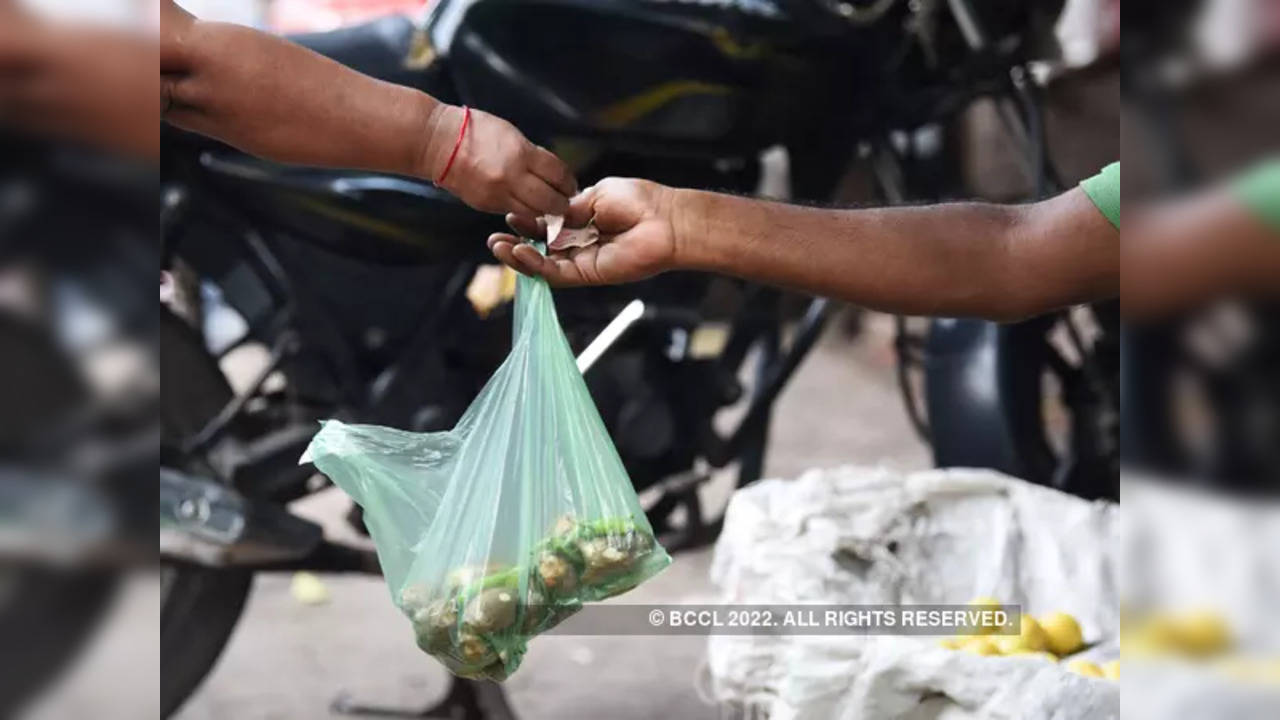How single-use plastic ban across India will change your life from tomorrow and its alternatives
India implemented a ban on the use of items of single-use plastic, which will be effective from July 01. Here is what changes from tomorrow for you. What are the items that will be banned under the new directive, what will be the penalties and why was the single-use plastic ban necessary?

Representative Image.
Photo : BCCL
KEY HIGHLIGHTS
- Many eco-friendly and convenient alternatives of single-use plastic items available in market.
- Manufacture, import, stocking, distribution, sale and use of identified single-use plastic items banned.
- Jail up to 5 years and/or Rs 1 lakh fine maybe imposed other than local penalties
New Delhi: In a defining step to curb pollution caused by littered and unmanaged plastic waste, India will ban the manufacture, import, stocking, distribution, sale and use of identified single-use plastic items, which have low utility and high littering potential, all across the country from July 1, 2022, read the notice issued by the government of India on June 28.
What is single-use plastic, which items will be banned?
As the name speaks for itself, single-use plastic items are those items made of plastic, which are only used once and then tossed, adding to mountains of plastic waste in the world. It includes shampoo bottles, sachets, plastic bags made of polyethene, disposable coffee/tea glasses, etc.
Under the new directive as per PIB’s note, the banned items will include earbuds with plastic sticks, plastic sticks for balloons, plastic flags, candy sticks, ice- cream sticks, polystyrene (Thermocol) for decoration, plastic plates, cups, glasses, cutlery such as forks, spoons, knives, straw, trays, wrapping or packing films around sweet boxes, invitation cards, cigarette packets, plastic or PVC banners less than 100 micron, stirrers.
Not only the sale, giveaway, or usage of these items will be banned from July 1 but also their production, import from another country, possession, and distribution.
These items in particular are banned based on the difficulty in recycling or collecting them.
How will your life be changed and what will be the alternatives?
India had already banned plastic carry bags under 75 microns last year, however, another variation of them was still largely in use at local grocery markets. You won’t be able to get convenient plastic bags anymore to carry your veggies. As an alternative, you can take cloth bags from home or the grocery sellers might start keeping jute bags or such alternatives, however, it might prove to be heavy on your pocket.
Most of the plastic items in the list are replaceable by similar items made of thick paper, like balloon sticks, flags, or straws. Non-plastic decorative items have tons of eco-friendly alternatives, and a lot of DIY items can be learnt to be made from the internet for decoration as a replacement for plastic.
Convenient plastic cutlery, often used when hosting a large number of guests at parties will have to go. However, you would revel in going back to your roots in form of cutlery made out of leaves, which will be cheaper, safer for animals, and will un-chock the environment. Their eco-friendly replacements made from thick paper and thin wooden sheets are already popular in the market, especially for tea and coffee consumption.
Punishment for failing to adhere to single-use plastic ban:
The state and central pollution control boards will be enforcing this ban from tomorrow. New commercial licenses for local businesses will be mandatory with the condition of not selling or distributing single-use plastic items.
Punishments on this will be meted out under the Environment Protection Act of 1986, under which violators can face a jail term of up to five years or Rs 1 lakh penalty or both. Apart from this act, local administrations, including Panchayats, municipal corporations, and district administrations will also be allowed to make their own laws against plastic pollution and single-use plastic.
Trending:
End of Article
Subscribe to our daily Newsletter!





Related News





Interview with Dr. Debraj Shome on Shifting Perceptions in Cosmetic Surgery: Prioritizing Safety and Innovation

1937 Mercedes-Benz 540K: The Resurfacing of a Star from The Pranlal Bhogilal Collection!

Brothers Hacked In Front Of Eyes, Boy, 10, Shares Chilling Details Of UP Double Murder

Delhi Police Recovers Body Of ACP'S Missing Son From Haryana's canal

15-Year-Old Rape Survivor Hangs Herself After She Was Found Pregnant









